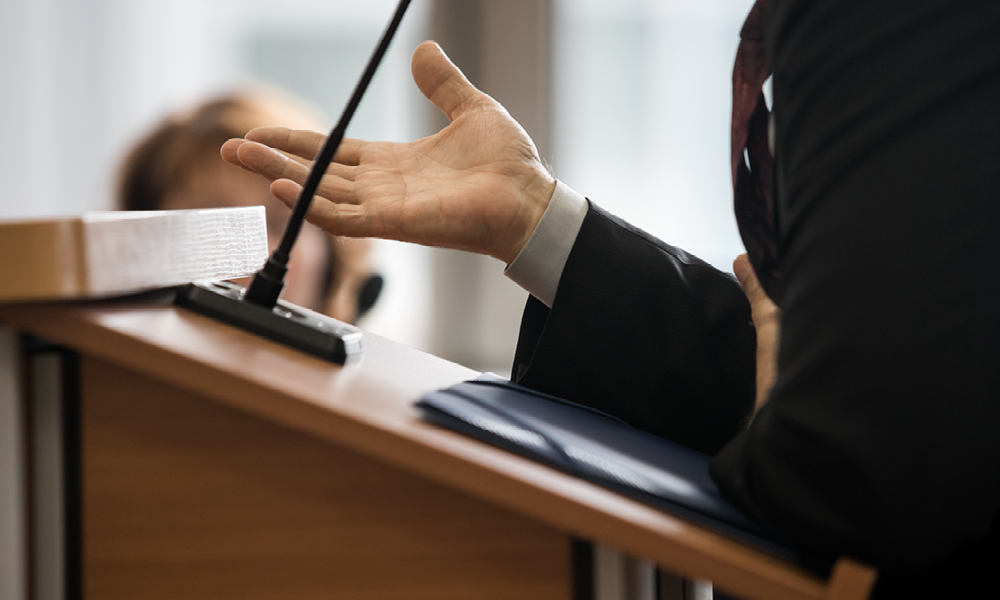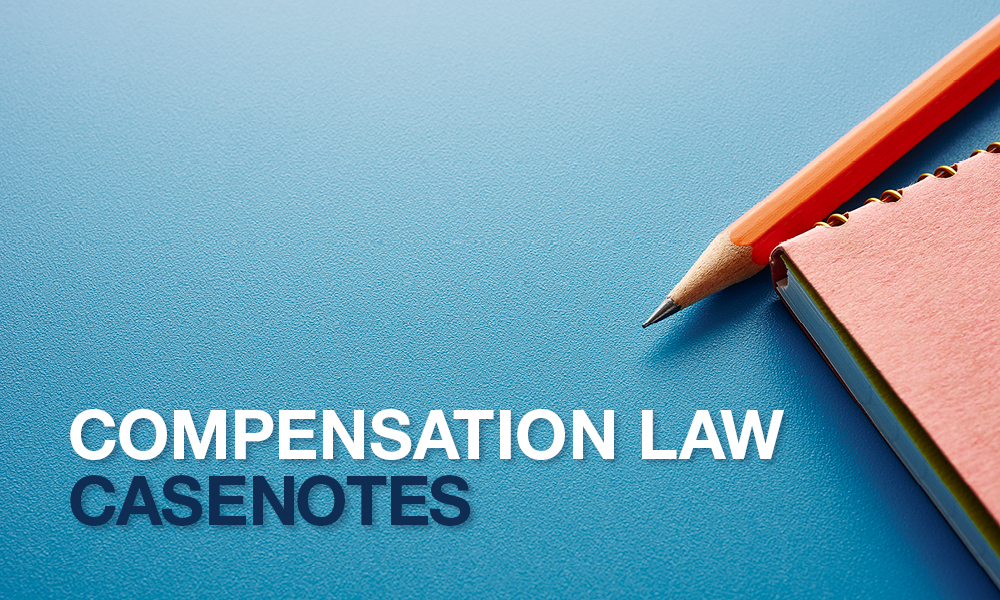Barristers Geoffrey Diehm KC and William Isdale offer 10 tips on expert opinion evidence in a two-part series. Here are the final five.
Preserve and project the independence of your expert
In a passage that has been cited by Australian courts on numerous occasions, Lord Wilberforce said that:1
“… it is necessary that expert evidence presented to the Court should be, and should be seen to be, the independent product of the expert …”
In Queensland, the expert’s duty to assist the court above all else – and not to act as an advocate for a party to the proceeding – is reflected in r 429F of the UCPR.
A court is unlikely to give much weight to an expert that it perceives to be other than completely independent. For example, in Universal Music Australia Pty Ltd v Sharman License Holdings Ltd [2005] FCA 1242, Justice Wilcox concluded that it would be “unsafe” to rely on the evidence of a Professor Ross where it concerned any matter in controversy. That was because the Professor had readily acceded to a suggested amendment to his report by a lawyer, who had written: “Keith, we want to try to avoid you being exposed to criticism so how about …”, with the offending words then inserted. Rather than seek to verify the statement inserted into his report, the Professor simply replied, “I was not aware of this … But if you say it is so, then fine by me”. Justice Wilcox said he was “forced to conclude that Professor Ross was prepared seriously to compromise his independence and intellectual integrity” (at [231]).
Another example is ASIC v Drake (No 2) [2016] FCA 1552, where Justice Edelman considered that a financial expert called by ASIC had displayed the “worst characteristics of partisanship”, including by constantly shifting his evidence under cross-examination to support the outcome he had expressed. The result was that “none of his evidence is capable of acceptance” (at [372]).
Those are cases in which the failure to ensure independence was quite blatant. But threats to independence can be more subtle. For example, you should be cautious about doing anything that could be perceived as trying to influence the expert’s opinion. You should avoid telling the expert about the outcome that your client is desirous of obtaining. And you should be careful not to suggest to the expert that they owe some obligation to the party on whose behalf they are called, over and above their duty to give independent evidence which assists the court.
Obviously, a fee arrangement with an expert should not include any uplift or success fee. A paper by former Member Cochrane of the Land Court records his surprise, and disappointment, to discover on rare occasions that valuers giving evidence have had fee arrangements that include a ‘success fee’. Such an arrangement “inevitably taints their own credibility and hence the worth of the evidence which they are giving”.2
A novel suggestion to project the impartiality of your expert comes from Justice Kunc of the New South Wales Supreme Court, who said in 2017 that: 3
“… as a matter of first impression my attention would really be drawn to an expert’s report which was accompanied by an affidavit from the expert stating that she had prepared the report in ignorance of whether the party which had retained her was the plaintiff or the defendant. In many cases there is no reason why that could not be done.”
Be involved in shaping the form of the report
In Harrington-Smith on behalf of the Wongatha People v State of Western Australia [2003] FCA 893, Justice Lindgren said that (at [19]):
“Lawyers should be involved in the writing of reports by experts: not, of course, in relation to the substance of the reports (in particular, in arriving at the opinions to be expressed); but in relation to their form, in order to ensure that the legal tests of admissibility are addressed.”
More recently, in Landel Pty Ltd v Insurance Australia Ltd [2021] QSC 247, Dalton J said that (at [19]):
“… it is permissible, and usually desirable, that lawyers do become involved in the editing of expert reports so that they present material in a way which is accessible and comprehensible, and do not contain irrelevant material.”
In that case the expert’s reports were said to be “prolix and disorganised”, and there ought to have been efforts made by the lawyers to “see what could be done to improve these types of problems” (at [20]).
While assisting with the form of the report is desirable, being seen to influence, or alter, the substance of the report and its opinions is improper and will likely result in it being given little, if any, weight.
A recent case which considers this issue is the Full Federal Court’s judgment in New Aim Pty Ltd v Leurng [2023] FCAFC 67. In that case, the Full Court said that the primary judge had erred in rejecting an expert report, parts of which appeared to have been drafted by solicitors. The primary judge had been highly critical of that involvement, saying that “[w]hat occurred in this case should not be repeated” (at [76]).
However, the Full Court did not consider the involvement of solicitors in drafting to necessarily be problematic, noting that this commonly occurred, for instance in taking affidavits of witnesses. The Court said there is “not one rule of practice which covers all experts or all situations” (at [120]), but emphasised that a core ethical requirement on practitioners is a “requirement not to influence a witness’s evidence” (at [119]). Further, “care must be taken to ensure that the legal practitioner does not suggest what the expert’s evidence should be” (at [120]).
There is a blurry line between substance and form, and divergent judicial views about how much solicitor involvement may be acceptable in drafting reports. For example, in Potter v Gympie Regional Council [2022] QSC 9, Justice Brown wrote that the practice of having solicitors draft memoranda of conferences with the experts to be signed by the experts, rather than the experts themselves preparing such documents, was “not … a practice which should be encouraged” (at [592]). You should keep the breadth of judicial views in your mind when deciding how much involvement you will have.
Overcome the curse of knowledge and ensure clarity
Studies show that people tapping out a tune consistently overestimate the proportion of listeners who will correctly guess the tune. That’s due to what is described as the ‘Curse of Knowledge’. In their head, the tapper hears the tune in all its musical glory – but all the audience hears is some kind of “bizarre morse code”.4
Something similar can happen when we try to communicate with others, particularly on complex topics about which we know a lot. The problem is that we have great difficulty in imagining what it is like for someone else not to know something we know. This is a particular problem for experts.
According to the book The Sense of Style by Steven Pinker, a Professor of psychology at MIT, “[t]he curse of knowledge is the single best explanation … of why good people write bad prose. It simply doesn’t occur to the writer that her readers don’t know what she knows.”
As a result of conferencing with your expert, you too will likely be afflicted with the Curse of Knowledge. But the judge reading the report, perhaps only once, won’t have anywhere near as much familiarity with the detail. Without the benefit of all your background knowledge, will they find the report readily comprehensible?
According to Pinker, people are not easily disabused of their Curse of Knowledge, even when they are told to ‘keep the reader in mind’. Accordingly, better ways to exorcise the curse are to be aware of the specific pitfalls that it often results in, namely:
- overuse of jargon;
- abbreviations;
- technical vocabulary;
- allusions to concepts which have not been introduced.
Sometimes, all that is required is a few additional words of explanation. For example, Pinker gives the example of a botanist who might write, “Arabidopsis, a flowering mustard plant”, rather than simply “Arabidopsis”.
There are other things that solicitors can and should do to ensure that expert reports are clear and, consequently, persuasive. They include using Plain English, omitting verbiage, and including a summary.
One way to make text more readable is to break up long paragraphs into smaller ‘chunks’. There are limits on the amount of information that the human mind can hold onto at any one time. Memory wanes as a sentence or paragraph lengthens. So keep paragraphs short, punchy, and ideally related to a single idea or concept.
Further, have the take-away points or conclusions appear first (e.g. the expert’s answer to the question asked in summary form), before including all the additional reasoning and analysis in support of it. As journalists say, don’t bury the lead.
When a report is particularly important for your case, consider appointing a professional editor who can work with expert, and/or someone who might assist with the creation of graphs, diagrams or other visuals.
Review the report
Once you’ve received a report, it’s critical that you review its compliance with the UCPR, and with the common law requirements as summarised in Makita (discussed above).
In particular, consider:
- has the expert stuck to their knitting, or expressed opinions on matters outside of their expertise? As a paper from Justice Davis and Joshua Jones observes, “… it is often the case that an expert will stray”.5
- has there been an appropriate articulation of the basis for the opinion, including any assumptions that have been made?
- is there a clear logical connection between the observations made and conclusions reached?
- is there appropriate attribution of sources, including citations of any authorities relied on (industry standards, journal articles and the like)?
- has the report been written with an objective tone? As former justice Glen Williams has observed, “it ought not be presented in the form of a special pleading”.6
- is the report clearly written and free from grammatical and formatting errors?
If the report is adverse to your client, think carefully about whether, among other things:
- the expert was provided with all of the relevant documents;
- they were asked the right questions;
- whether they have relied on the right assumptions or facts; and
- whether they considered the views reached by any other experts.
If not, then note the error or omission and ask the expert to review the report in light of it.7
Be aware of jurisdictional differences and Practice Directions
While the tips outlined in this article are generally applicable, some of the specifics vary by jurisdiction. For example, for proceedings in the Federal Court, you will need to be aware of the requirements in Part 23 of the Federal Court Rules, and that Court’s Expert Evidence Practice Note.
Even within Queensland there is some variation – so make sure you check for any court-specific requirements. For example, the Land Court has Practice Direction 06/2020 – Expert Evidence in the Land Court.
For proceedings in the Supreme Court of Queensland, apart from the requirements under the UCPR, you should be particularly aware of the following Practice Directions:
- 2005/02 – Expert Evidence: Supreme Court – which includes a requirement that before commencement of a proceeding, or shortly afterwards, a party intending to call expert evidence on a substantial issue should raise with all other parties the prospect of jointly appointing an expert to become the only expert to give evidence on that issue.
- 2018/18 – Efficient conduct of civil litigation – which requires that “[e]xpert witnesses in the same field give their evidence concurrently or consecutively, if possible”.
- 1/2013 – Commercial List – Commercial List Note about Expert Evidence – which includes that, for cases on the Commercial List, the parties are expected to address the need for expert evidence at the first review; parties are not to retain an expert whose availability is likely to cause undue delay; where contentious expert evidence is to be adduced, the questions are so far as possible “to be those specified by the Court or agreed by the parties”; parties should consider whether it is cost effective and expeditious to prepare a joint statement of assumptions to be made by the experts; and unnecessary duplication of materials briefed to experts is to be avoided. The Note also includes other directions about expert conferences and other matters (including the giving of expert evidence concurrently).
Hopefully by now you’re a bit closer to yourself being an expert – in how to brief experts and work with them as they prepare their evidence. Good luck!
Footnotes
1 Whitehouse v Jordan (1981) 1 All ER 267, 276.
2 Member Cochrane, ‘Expert Evidence – the View from the Bench’ (2010).
3 Justice Kunc, ’16 Rules for the Compleat Expert’ (2017, speech to the Australian Accountants, Lawyers and Directors Conference), 15.
4 Harvard Business Review, ‘The Curse of Knowledge’ (2006) <https://hbr.org/2006/12/the-curse-of-knowledge>.
5 Justice Davis and Joshua Jones, ‘Handling Expert Evidence’ (2022, paper delivered to the Australian Defence Lawyers Alliance Symposium).
6 Justice Glen Williams, ‘Expert Evidence – a judge’s assessment’ (2001, speech delivered at the Australian Institute of Quantity Surveyors Expert Witness Workshop).
7 NSW Young Lawyers, ‘The Practitioner’s Guide to Briefing Experts’ (2017), 32.










Share this article